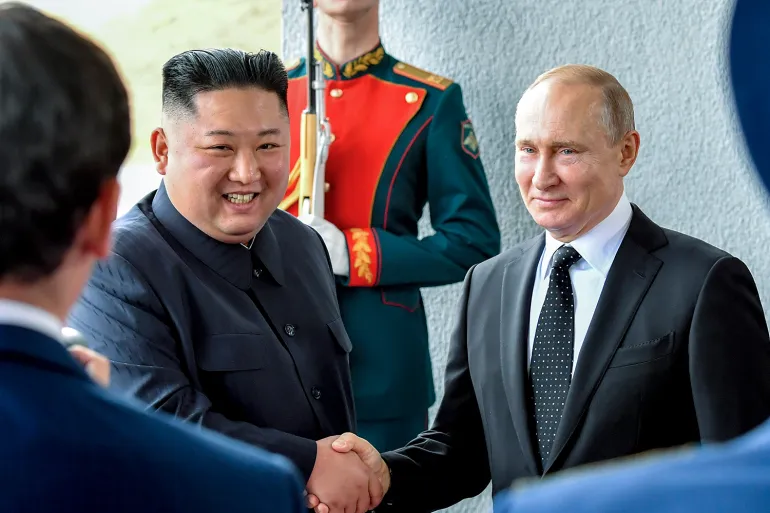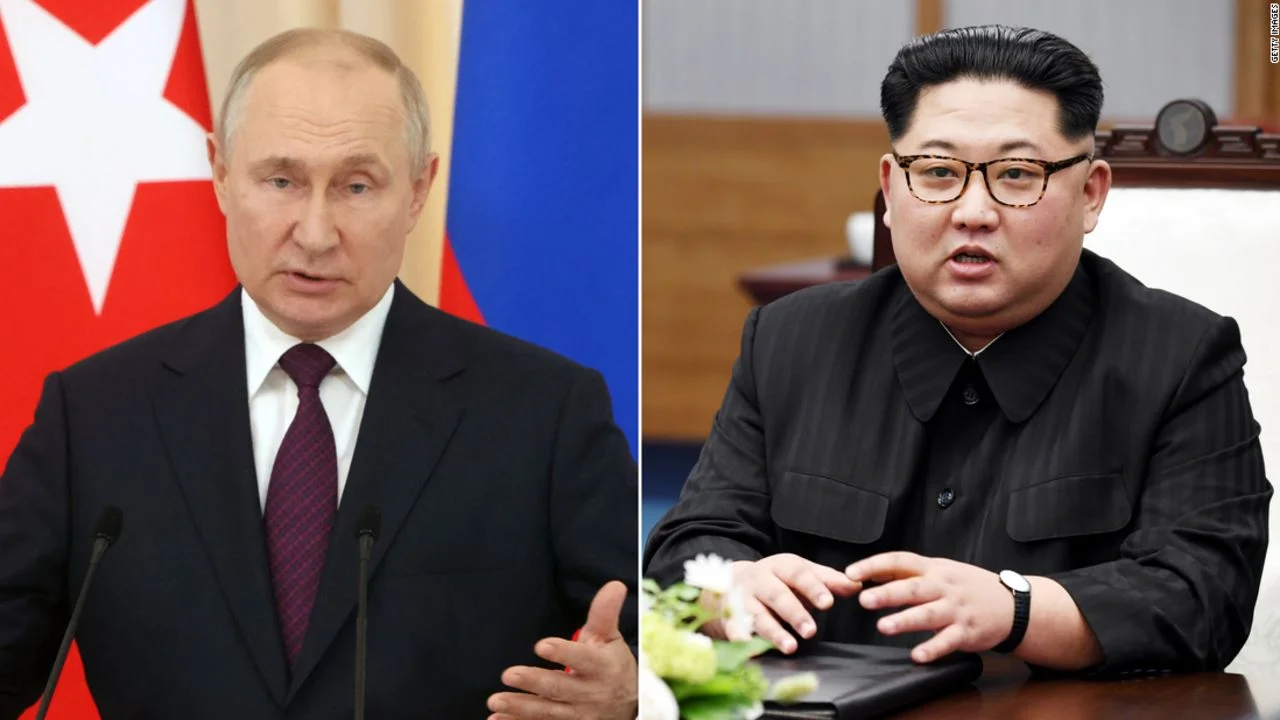North Korean leader Kim Jong Un has embarked on a significant diplomatic journey to Russia, traveling on a specially chartered train, following the confirmation of a meeting with Russian President Vladimir Putin. This development has garnered widespread attention from media reports and experts in international relations.
The talks between Kim Jong Un and Putin have sparked speculation about potential negotiations involving North Korean artillery shells and antitank missiles in exchange for advanced technology, food aid, and other essential provisions. Experts suggest that Kim may be seeking access to technological advancements related to satellites and nuclear-powered submarines as part of these discussions.
Kim Jong Un’s visit to Russia marks a remarkable departure from his usual reclusive stance, as he has rarely ventured beyond North Korea’s borders, especially since the onset of the COVID-19 pandemic. His decision to engage in international diplomacy during these challenging times underscores the significance of the meeting.

This diplomatic visit has also raised concerns and questions regarding potential arms deals between North Korea and Russia, which could have far-reaching implications, particularly concerning the ongoing conflict in Ukraine.
The White House has already issued warnings about the potential consequences if North Korea supplies weaponry to Russia for its involvement in Ukraine. Of particular concern is the possibility that such weaponry could be used against Ukrainian food supplies and critical infrastructure, including heating facilities.
Additionally, experts view this summit as a strategic move by Moscow to exert pressure on South Korea. Russia may aim to dissuade South Korea from providing military support to Ukraine by engaging in negotiations with North Korea, a notable player in the region.
South Korea holds a significant position as an arms exporter and has previously sold tanks to Poland, a key ally of Ukraine. However, South Korean domestic policies restrict the sale of weapons to active conflict zones.
The outcome of the summit could have a substantial impact on North Korea’s military cooperation with Russia and potentially influence the ongoing conflict in Ukraine. Any support provided by North Korea to Russia may expedite advancements in North Korea’s nuclear submarine and reconnaissance satellite programs.
Kim Jong Un’s well-known preference for train travel during international trips is driven by concerns about potential aerial attacks and a lack of confidence in his private jet. Notably, in 2019, he embarked on a lengthy 60-hour train journey from Hanoi to Pyongyang following a summit with then-US President Donald Trump.
The summit between Kim Jong Un and Vladimir Putin highlights the complex geopolitical dynamics at play in the region and underscores the potential consequences for ongoing conflicts and diplomatic negotiations.




